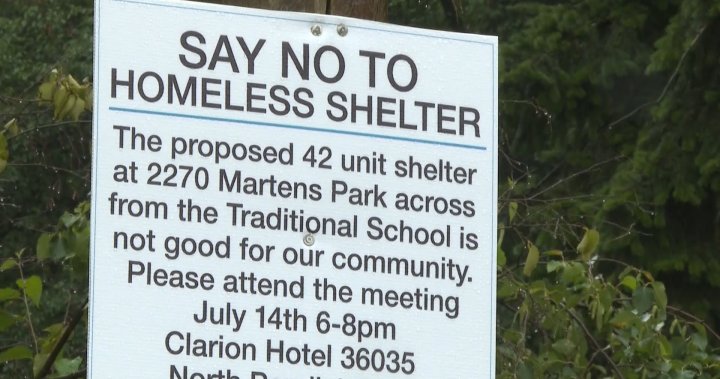In the shadow of Martens Park, a growing wave of resistance has emerged as Abbotsford residents mobilize against a proposed supportive housing project that many fear will fundamentally alter their neighborhood’s character and safety. The controversial 50-unit development, intended to provide housing for individuals experiencing homelessness, has sparked intense community debate that transcends typical NIMBY concerns.
“We’re not opposed to supportive housing in principle,” explains Ravi Sharma, a longtime Abbotsford resident who lives three blocks from the proposed site. “But the location adjacent to an elementary school and family park raises legitimate safety questions that deserve serious consideration.”
The project, spearheaded by BC Housing in partnership with local nonprofit organizations, aims to address Abbotsford’s growing homelessness crisis by providing stable housing coupled with support services. According to BC Housing statistics, the city has seen a 24% increase in unhoused individuals since 2019, creating urgency around developing new housing solutions.
However, at Tuesday’s emotionally charged community meeting, over 300 residents packed the Matsqui Recreation Centre to voice their opposition. Many expressed frustration over what they describe as inadequate community consultation and transparency from city officials.
“The first we heard about this project was through a small notice posted at the park,” said Emma Chen, who has lived in the neighborhood for 12 years. “For something that will so dramatically impact our community, we expected a more collaborative approach.”
City Councillor Patricia Martinez defended the project’s location and scope during the meeting, noting that the development “represents a critical step toward addressing our community’s housing crisis while providing essential support services to those most vulnerable.” She emphasized that similar projects in other communities have successfully integrated into residential neighborhoods.
The proposal includes 24-hour staffing, mental health supports, and addiction services—elements that supporters argue are essential for successful transitions from homelessness. Yet these same features have intensified community concerns about potential impacts on crime rates and public safety.
Data from comparable housing projects in British Columbia shows mixed results. While some communities have reported minimal neighborhood disruption, others have experienced increases in police calls and public disturbances following similar developments.
Abbotsford Police Chief Robert Wilson, speaking at the community meeting, acknowledged residents’ concerns while cautioning against assumptions. “We’ll be working closely with housing operators and city officials to ensure appropriate security measures are in place if this project moves forward,” he stated.
For families with children attending nearby Martens Elementary School, the proximity of the proposed housing creates particular anxiety. Parent Advisory Council president Samantha Nguyen expressed concern about children’s safety during school hours and after-school activities in the adjacent park.
“We want compassionate solutions for homelessness, but we also have a responsibility to protect our children,” Nguyen said. “There must be a way to balance both needs without compromising either.”
As opposition intensifies, residents have organized a neighborhood coalition that has gathered over 1,200 signatures on a petition demanding the city consider alternative locations. The group has also retained legal counsel to explore potential challenges to the development approval process.
City officials confirm that final decisions on the project remain pending, with additional public consultations scheduled for next month. Mayor Harjit Singh has promised a “thorough review of community feedback” before council votes on the proposal.
The controversy highlights the complex tensions that emerge as communities across Canada grapple with competing priorities: addressing urgent housing needs while respecting neighborhood concerns. As housing affordability continues to deteriorate nationwide according to recent economic analyses, similar conflicts are likely to multiply in communities struggling to develop effective responses.
As Abbotsford residents prepare for the next phase of this contentious debate, the fundamental question remains: Can communities find a balanced approach that addresses both homelessness and neighborhood concerns, or are these priorities destined to remain in conflict? The answer may shape not just Martens Park, but housing policy decisions throughout the province for years to come.










